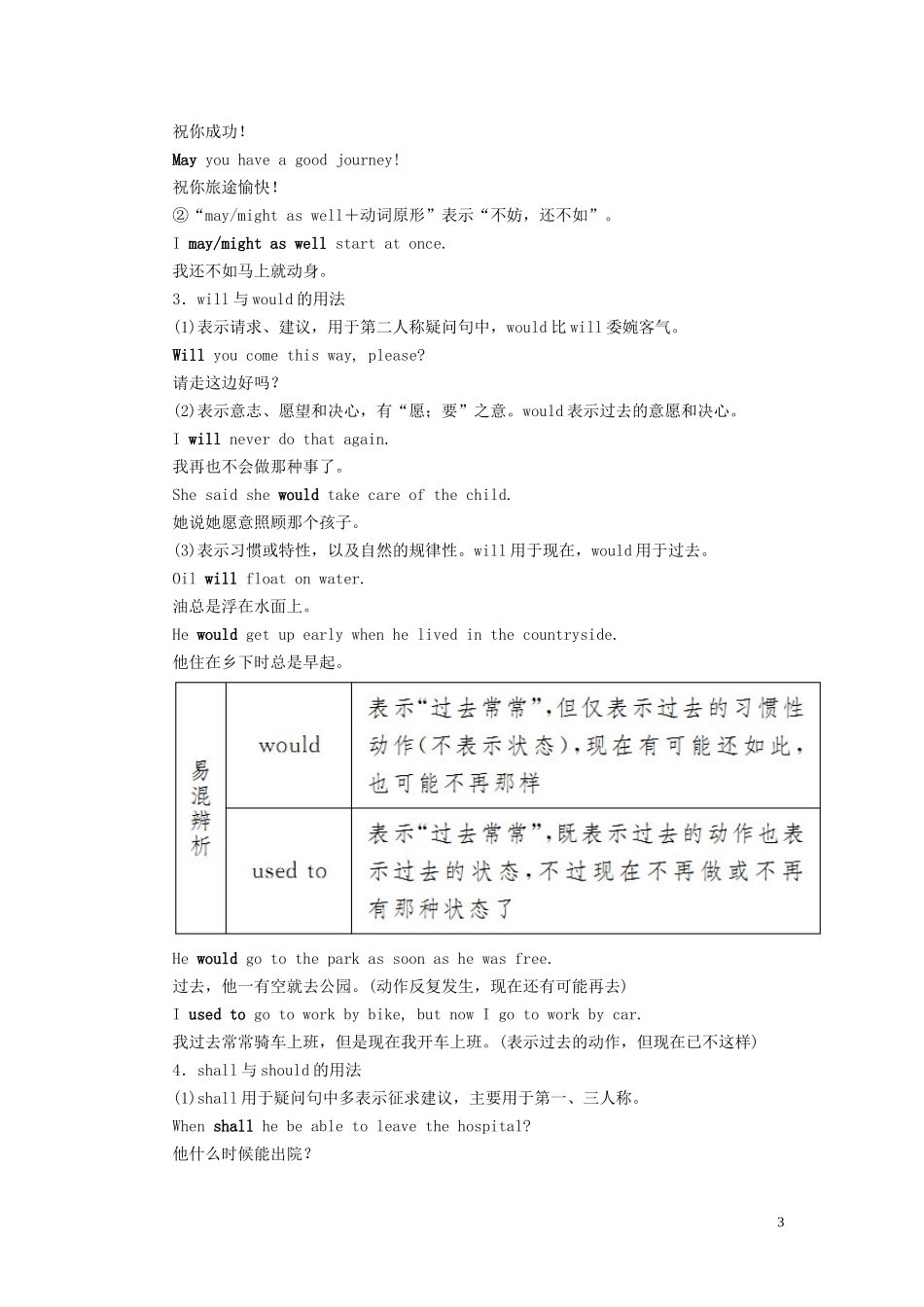Part Ⅲ Grammar & WritingGrammar——情态动词(Ⅰ)一、概念情态动词本身有一定的词义,表示说话人的某种感情或语气,对某一动作或状态的某种态度,表示“需要”“可以”“必须”“应当”等意义。二、基本特征1.情态动词有一定的词义,不能单独作谓语,需和实义动词或系动词一起作谓语。She can speak English fluently though she is five.尽管她才 5 岁,但她说英语流利。2.情态动词一般无人称和数的变化,个别情态动词有现在时和过去时两种时态变化。Mary must be in the library.玛丽一定在图书馆。3.构成否定句时,not 放在其后面。The young man can't carry the big stone.这个年轻人搬不动那块大石头。4.情态动词后接动词原形。You will do as I told you.你得照我说的去做。三、基本用法1.can 与 could 的用法(1)表示能力:can 用来表示现在的能力,could 表示过去的能力。I can play basketball now, but I couldn't when I was young.现在我会打篮球了,但小时候我不会。(2)表示请求和许可:could 语气比 can 委婉,但回答时只能用 can。Can/Could you lend me a hand?你能帮我一下吗?(3)表示推测,意为“可能”,多用于否定句或疑问句。—Can he be in the reading room now?—No, he can't be in it. Because I saw him in the office just now.——他现在可能在阅览室吗?——不,他不可能在(阅览室)。因为我刚刚在办公室看见他了。(4)表示推测,意为“有时会”,常用于肯定句中。Scotlandcan be very warm in September.九月的苏格兰有时会非常暖和。1(5)can 的其他用法①“can't+be/行为动词+比较级”表示“再没有……比……更”。I can't think of a better idea.这个主意真是太好了。②“can't+动词原形+too/enough”表示“无论怎么……也不过分”。I can'tpraise this film highly enough.我无论怎样赞扬这部电影也不过分。③“can't+help+动名词”表示“禁不住做某事”。When hearing that, every one of us could not help laughing.我们大家听到那件事,都忍不住笑了。Meng Peijie could take care of her mother when she was very young.孟佩杰在很小时就能照顾她妈妈了。The girl will be able to speak English well in a few months.这个女孩几个月后就会说流利的英...


